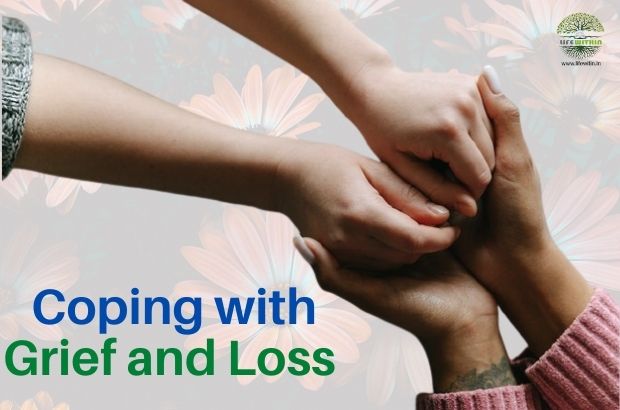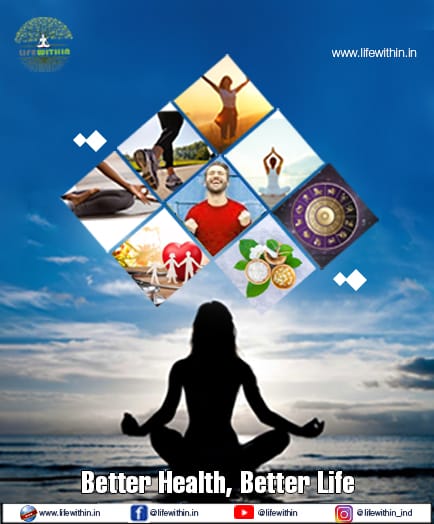How To Deal With Depression During Coronavirus Time? | Dr Prameela Sreemangalam
- Jul 29, 2021
- 1406 View
During this time, one may be experiencing a range of emotions such as feeling anxious, sad, teary, depressed, angry or l...

Coping with Grief and Loss
Many of us are experiencing ‘Grief’ during the COVID-19 pandemic. Grief is a normal response to loss during or after a disaster or any traumatic event.
During the second phase of covid-19, most of us witnessed the loss of lives of many people we knew as acquaintances and some even close family members of relatives. ‘Death‘ seemed like some distant concept until now. This shock and trauma topped with the fear and anxiety of the virus has affected us in myriad of ways.
During this time, one may be experiencing a range of emotions such as feeling anxious, sad, teary, depressed, angry or lonely. Identifying these signs of grief is the first step. Some common reactions to grief include shock, disbelief, denial, anxiety, anger, sadness, loss of sleep and appetite.
Research in Grief and Loss makes a distinction between Primary and Secondary Losses.
PRIMARY LOSSES:
Include major life
events like the death of a loved one or a job loss.
Grieving the loss of
a loved one while coping with the fear and anxiety of COVID-19 can be
especially overwhelming. Normally there is a whole societal system that
helps us grieve and offers us support and
comfort through a live memorial gathering, however the social distancing and
stay at home orders has limited these in-person gatherings at funeral services
though it is important to slow the spread of the virus.
Hence, you might be
unable to be present in person to mourn someone’s death with your friends and
family also you might not even able to be with the covid infected loved one
when they ‘die!’ This all adds up to the helplessness and feelings of grief.
Other types of loss include “unemployment” or not making enough money especially by the small businesses that are running into losses.
SECONDARY LOSSES:
Include loss of relationships, recreation and social support.
Right now you may be feeling anxious and sad due to the inability to connect in person with friends, family or religious organisations, missing special events and milestones such as flying down to attend your child’s graduation ceremony, or weddings, vacations and also experiencing drastic changes to daily routines and ways of life that earlier brought you comfort and a feeling of stability. The sad part is that all these losses can happen at the same time that can complicate or prolong grief and delay a person’s ability to adapt, heal and recover.
WAYS TO COPE WITH GRIEF AND LOSS
1) Don’t be hard on yourself-it’s Okay, know your feelings are valid.
Be mindful of the fact that it is a tough time that the world is going through and its only normal to be overwhelmed by the dismal situation. Acknowledge your feelings by validating them even naming them such as fear and anxiety and even the physical symptoms such as shortness of breath, palpitations, feeling lethargic etc.
2. Stay connected to community.
‘Social distancing’ should not mean ‘social
disconnection’. We as humans work better in company and with support as we are
social creatures.
Make sure you stay
connected with the outside world. Plan in advance a few calls or video chats
per day with your friends, family to relax, chit-chat using zoom, skype, social
media like Instagram, whatsapp etc.
You may even attend meditation and yoga sessions online to keep your life as normal as possible.
3. Stress management and reach out to a Counselor or a mental health expert
Verbalise your anxious feelings to a confidante or book a session with a counsellor.
Practice diaphragmatic breathing or deep breathing several times a day rather than just once. Whenever you feel anxious, inhale deeply through your nose from the bottom of your abdomen way upto the lungs to the count of six, hold your breath to the count of six and then exhale from the mouth again to the count of six. (6-6-6/even count breath)
Visualise all stress
and fears exiting your energy system in a black cloud of smoke.
Practice Affirmations
such as “I am a peaceful and calm person”, “I am
happy and healthy”.
Practice Mindfulness by sitting in silence in a meditative posture on a chair with an erect spine or in a lotus posture on the ground. Simply becoming aware of all the subtle sounds and smells around you small and simultaneously observing natural breathing.
4. Keep active and get fresh air and sunlight
Excercise daily in some form at least for thirty minutes whether it’s walking, yoga, taichi, swimming etc. Get fresh air daily by an early morning walk in a park or in your driveway or simply standing in your balcony.
5. Eat a well-balanced diet
and limit alcohol consumption.
Consume more of a plant based diet rather than meat based. Veggies, fruits, soups, legumes, whole meal cereals, sprouts, fresh juices, herbal teas, nuts etc. This keeps our immunity high and auras strong. Avoid fatty and fried food and also white bread, sugar etc
6. Create routine and keep busy.
Wake up and sleep on time, create a routine so you have a structure to your day. Start with exercising, breakfast, then organise a few constructive tasks in your day that could be work related or even hobbies. One can attend online courses and workshops to enhance their personal or career development and use this time constructively. Incorporate time for family meals, tea times, an evening walk etc. This will limit over thinking and combat anxiety and depression.
7. Help children cope with Loss & Anxiety
Responsible adults need to look out for signs in children that they too might be struggling.
Ø Sleep wake cycles: Sleeping late and waking up in the middle of the nights, needs to be regulated.
Ø Disruptive Behaviour more than usual such as angry outbursts, lethargy or withdrawal.
Adults should be available to their children and parents should encourage them to talk and ask them if they too are feeling sad, anxious, depressed. Reassure them that they are safe and parents should remain calm.
Remind children the importance of frequent hand washing, covering their mouths while sneezing or coughing or using their elbow, wearing masks etc.
Avoid language that leads to stigma.
Limit their exposure to disturbing news.
Play chess games, Board Games with them or exercise with them.
8. Do Benefit Finding
Look for the Positives such as more family bonding time, more Quality time with children and also more time for yourself.
9. Pay attention to Self-Care without guilt.
Be it taking long baths, sleeping in, meditating, personal grooming, reading, watching your favourite movies etc
10. Seek out Grief Counselling Support
Seek support of a Grief & Loss counsellor to help you cope with the loss of a loved one.
Seek Emotional support from trusted community, elders & friends.
Seek Spiritual support
from a faith based Organisation, a religious organisation or ask for healing
prayers for the sick or the departed ones.
11. Limit watching news on coverage of Facts
& figures on Covid Death Rates as it night be adding to your stress.
Try to share only positive and useful content from trusted sources on social
media and abstain from spreading panic and fear. Unfollow people who add to
your anxiety
12. Helping your staff, maids etc at this time of crisis nit only makes a difference to the community but also to your mental health. Donate to food banks to help sick families and daily wage earners.
Let’s hope and pray that this dismal time ends soon. I am reminded of the ‘Serenity Prayer’.
“God, grant me the
serenity to accept the things that I cannot change, Courage to change the
things that I can and Wisdom to know the difference”
We need to accept not
only the loss of our loved ones but also the loss of our earlier routines & lifestyles.
Inspite of the
overwhelming grief and loss, we need to go on with courage & resilience to
find ways to restore our wellbeing. We can do this by
# Keeping the Faith that “All is in Divine Order”
Ø Acting in ways that are
consistent with our Personal values or deeply held beliefs.
Ø Feeling competent to face &
meet important challenges and accept these as opportunities for personal &
spiritual growth.
Ø Lastly, having a sense of belonging and mattering in the world by doing acts of kindness.
Bonne
Chance! (Good Wishes 🙏)
By: Taanya Nagi |
Holistic Counsellor &
Healer
www.holistichealingcentre.com |Whatsapp: +919999344415

